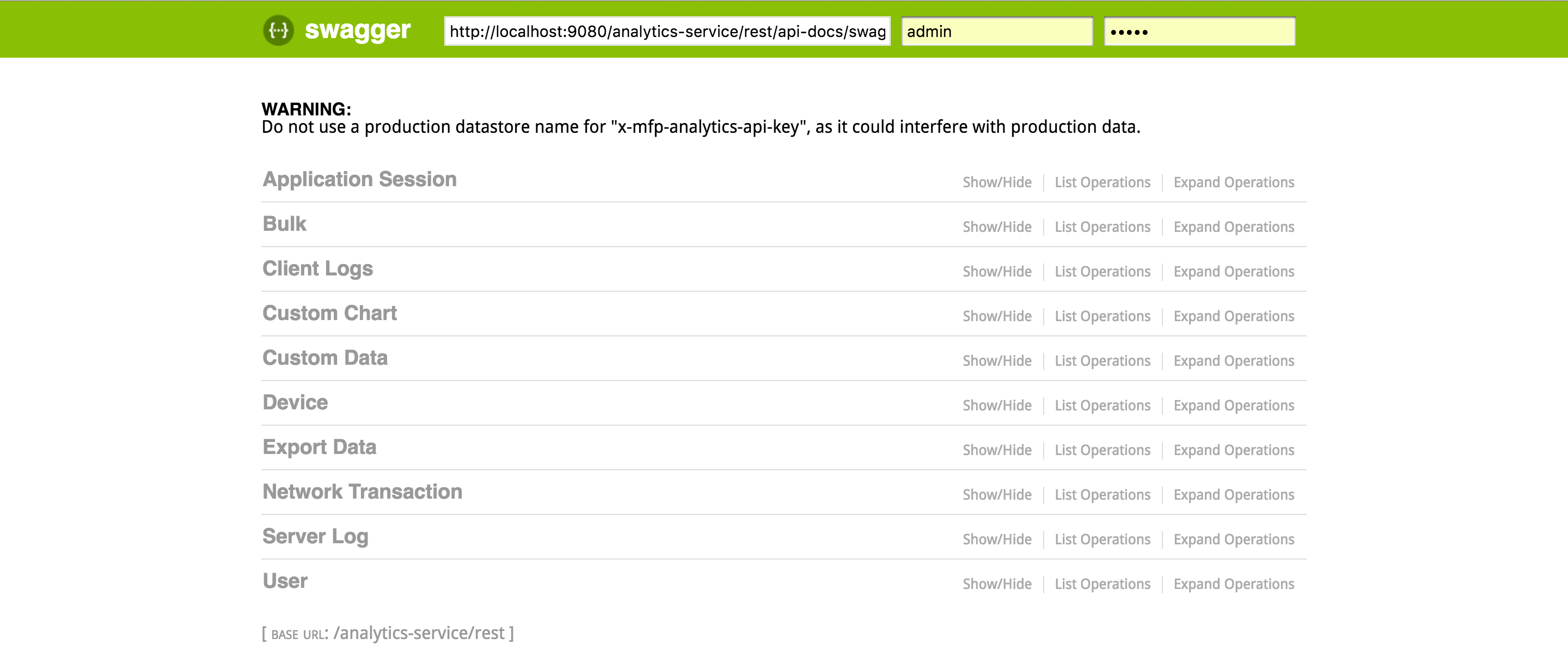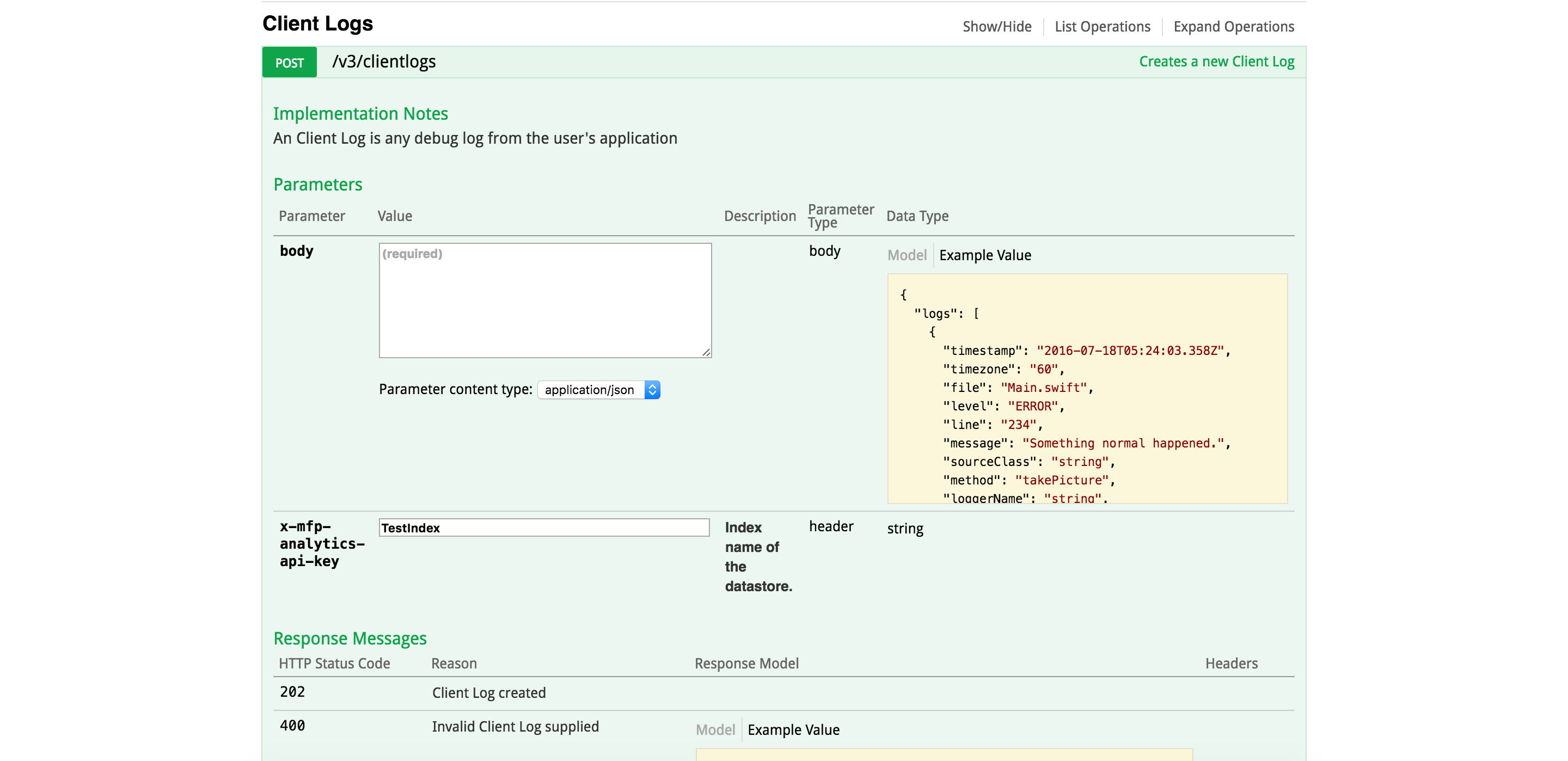Using Analytics REST API
improve this page | report issueOverview
IBM MobileFirst Foundation Operational Analytics provides REST APIs to help developers with importing (POST) and exporting (GET) analytics data.
Jump to:
Analytics REST API
To use the analytics REST API:
Base URL
/analytics-service/rest
Example
https://example.com:9080/analytics-service/v3/applogs
| REST API Method | Endpoint | Description |
|---|---|---|
| Application Logs (POST) | /v3/applogs | Creates a new application log. |
| Application Session (POST) | /v3/appsession | Creates an application session or updates an existing one when reporting with the same appSessionID. |
| Bulk (POST) | /v3/bulk | Reports events in bulk. |
| Custom Chart (GET) | /v3/customchart | Exports all custom chart definitions. |
| Custom Chart (POST) | /v3/customchart/import | Imports a list of custom charts. |
| Custom Data (POST) | /v3/customdata | Creates new custom data. |
| Device (POST) | /v3/device | Creates or updates a device. |
| Export Data (GET) | /v3/export | Exports data to the specified data format. |
| Network Transaction (POST) | /v3/networktransaction | Creates a new network transaction. |
| Server Log (POST) | /v3/serverlog | Creates a new server log. |
| User (POST) | /v3/user | Creates a new user. |
Try it out on Swagger docs
Try out the analytics REST API on Swagger Docs.
In a MobileFirst Server configuration with Analytics enabled, visit: <ipaddress>:<port>/analytics-service.

By clicking on Expand Operations, you can see the implementation notes, parameters, and response messages for each method.
Warning: Any data that you send by using Try it out! might interfere with data already in the data store. If you are not specifically trying to send data to your production environment, use a test name for the
x-mfp-analytics-api-key.

Inclusive terminology note: The Mobile First Platform team is making changes to support the IBM® initiative to replace racially biased and other discriminatory language in our code and content with more inclusive language. While IBM values the use of inclusive language, terms that are outside of IBM's direct influence are sometimes required for the sake of maintaining user understanding. As other industry leaders join IBM in embracing the use of inclusive language, IBM will continue to update the documentation to reflect those changes.